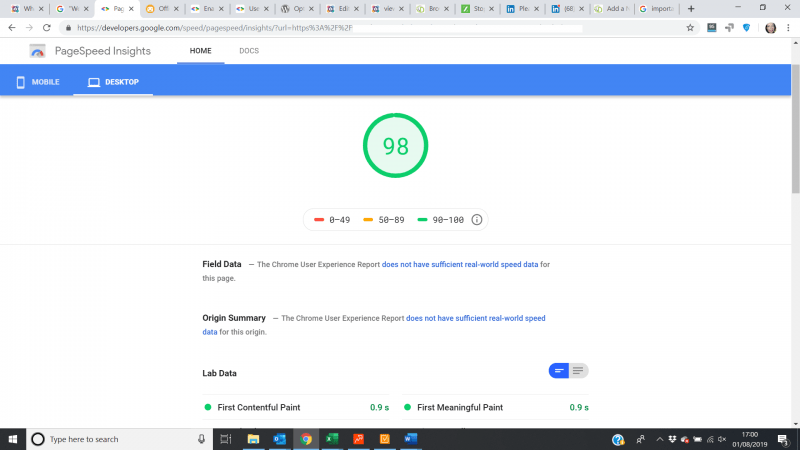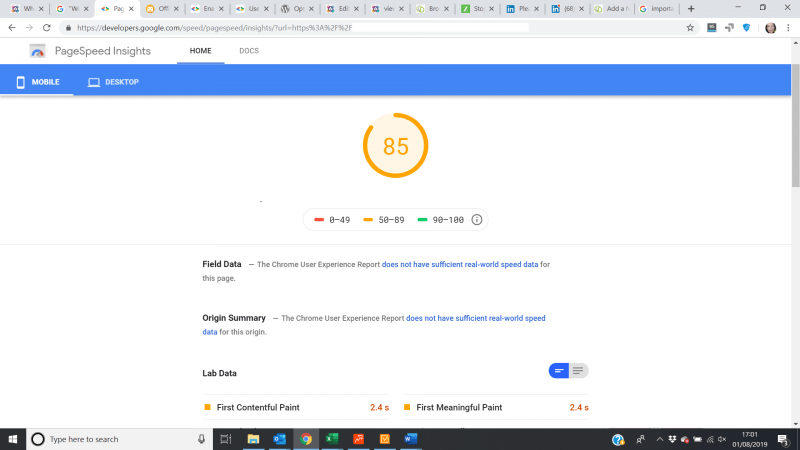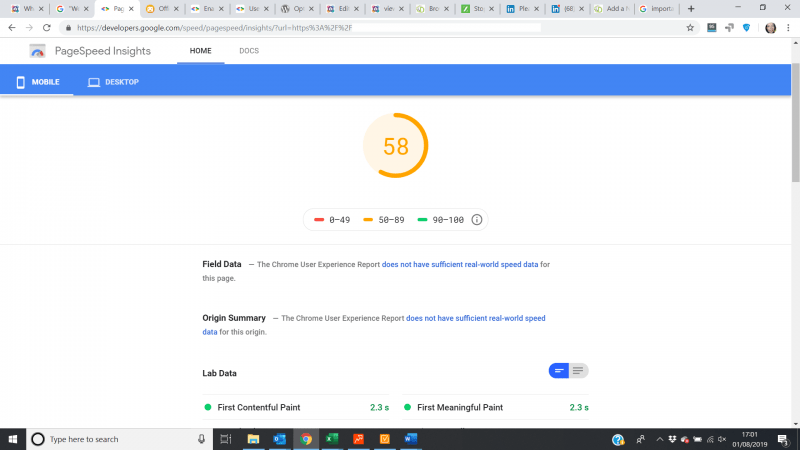It’s just over a year since Google updated it’s algorithm to focus on website load speed as a major ranking factor. Since then it has become more and more important to optimise a website for speed to maintain or achieve good rankings in the organic search listings.
Of course, the speed of a website has long been a ranking factor but the difference over the past year is that it’s the speed on mobile devices that is now the measure that contributes to a site’s ranking position – when previously it was the speed on a desktop computer. And for almost every site the mobile speed is typically worse, even for mobile optimised sites.
How fast a website loads matters – don’t we all want answers and info as quickly as possible whatever we are searching for? So the principle of prioritising sites that load quickly is a sensible one.
The problem is that the balance of power seems to have shifted to mobile speed to the exclusion of almost all else.
Back in July 2018 in Google’s announcement of the algorithm update they said:
The intent of the search query is still a very strong signal, so a slow page may still rank highly if it has great, relevant content.
Mmm – that’s not what I’m seeing at the moment.
Let’s take just one example:
A client website has a well-optimised, but not over-optimised, page on a particular key topic with good formatting and layout so it’s easy to read. And the WordPress plugin Yoast has given the green light to this target page (yes, I know Yoast is easy to fool but in this case the green light is genuine).
In total there are approx. 1,700 words of unique content on the page, it is linked to from other pages internally within the site and overall it should rank reasonably well in Google, but…
And, this is where I can’t quite believe Google’s assertion that great, relevant content will still trump a slow page…
…A random blog post about a different topic is appearing at position 11 in the organic search listings. That random blog post has little in the way of formatting, a single image and only 500 words of content. It has none of the well-designed, well-formatted layout of the target page.
So what’s going on? I’m glad you asked.
The key difference between the basic blog post and the well-optimised page is mobile speed. Both pages have similar speed on desktop – up in the high 90’s.

But the basic blog post has a mobile page speed of 85…

While the target page only has a page speed of 58.

We made some improvements to the target page (the one we wanted to rank) to improve the speed and happily this relevant page that has the information any visitor would be expecting has now superseded the standard, mostly irrelevant, blog post in the search listings.
The issue here is that to improve the speed we had to remove some nice design features. When surely the page content should have carried more weight than it did in the ranking algorithm? Has Google simply gone too far assigning the most weight to mobile page speed to the exclusion of all else on the page?
So if you have certain pages ranking in preference to the page you want to rank, then check mobile page speed for any significant difference. That could be the source of your problem too.
We use the free Google tool PageSpeed Insights which also makes suggestions for performance optimisation improvements.
As always, if you have any feedback please feel free to leave a comment below.
Or if you want to find out how we can help your website attract more customers get in touch at hello@dittodigital.co.uk or just call for a chat on 01494 530233.




